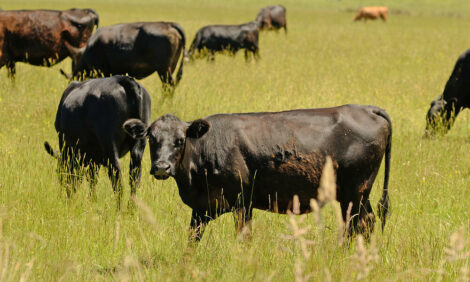



Industry Concerned with Proposed Changes to Livestock Feeding Permits
US - Missouri Cattlemen's Association (MCA) President Lonny Duckworth penned a letter this week to the Missouri Department of Natural Resources urging the agency to reexamine the definition of discharge and the inclusion of the linear rate approach in new permitting requirements for Confined Animal Feeding Operations (CAFO).Specifically, Mr Duckworth, on behalf of MCA outlined the need to regulatory certainty and flexibility in regulations.
"There are two major concerns regarding the draft permits that could substantially impact cattlemen and cattlewomen," said Mr Duckworth. "In short, two proposed changed take away regulatory certainty for farm and ranch families and stymie much-needed flexibility for farmer and ranchers. A one-size fits all approach does not take into account the diversity of farming and ranching operations. What works for one farming operation may now work for another."
One concern was the proposed revision to the definition of discharge. The previous definition stated that there must be actual contaminant discharged in the water from a farmer's operation. The new definition is based on the possibility of discharge.
"The new definition is concerning. It now states if you are designed or, constructed in such a way that a discharge will occur," said Mr Duckworth. The revised definition provides a great level of uncertainty for farm and ranch families and is rooted in assumptions; not science.
Mr Duckworth also noted in his letter that the proposed changes to the definition of discharge is not consistent with the Environmental Protection Agency's 2012 revised CAFO Rule.
The other concern was in regards to the elimination of choices when developing a Nutrient Management Plan (NMP). Mr Duckworth said both approaches have their pros and cons, but the linear approach requires a maximum amount of phosphorous and nitrogen that a land manager can apply to a field. This approach is less resource intensive.
The narrative approach gives farmers and ranchers flexibility of they want to change up the cropping system or change other factors under their NMP.
Other state permits allow for producers to decide what works best for their operation in terms of narrative versus linear. Duckworth said Missouri should allow this same flexibility for the states' farmers and ranchers.
Mr Duckworth said: "While the current economic and drought situation has taken a severe toll on Missouri's cattle industry, it remains our number one responsibility to provide the world's consumers with the safest, most nutritious and affordable beef and beef products. We cannot do this without a regulatory environment the offers consistency, certainty and flexibility. We are looking for a partnership with the Missouri Department of Natural Resources."
TheCattleSite News Desk


